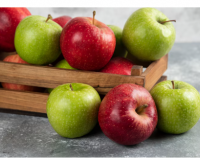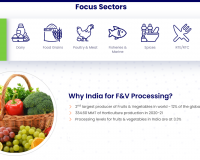India’s Food Processing Sector Leading Tier 2-Tier-3 Indian Cities To Becoming Growth Engines
The sector supports over 7 million jobs across the value chain, directly and indirectly, while enabling rural industrialisation and reducing post-harvest losses

New Delhi, May 22, 2025: India’s food processing sector is on a transformative growth path, and with consumption trends aligning across urban and rural India, tier 2 and 3 cities are fast becoming the engines of economic growth, according to a new report.
The sector supports over 7 million jobs across the value chain, directly and indirectly, while enabling rural industrialisation and reducing post-harvest losses.
According to the report by Deloitte and FICCI, the sector accounts for approximately 7.7 per cent of India’s total manufacturing GVA (gross value added), and its critical role in generating employment, fostering rural development and enhancing value addition.
TRENDING NOW
The agriculture and food processing sector, representing nearly 30 per cent of the national food market, is gaining momentum due to rising rural demand, digital advancements and strong policy support.
“India’s agri and food processing sector is on the brink of a transformative leap, where tradition meets cutting-edge technology to build a future-ready food ecosystem. Consumer demand is shifting towards clean-label, protein-rich and gut-friendly foods, driving a structural evolution in how India consumes food,” said Anand Ramanathan, Partner and Consumer Industry Leader, Deloitte South Asia.
India is poised to lead the global narrative on health-driven, tech-enabled and inclusive food systems, fuelled by advancements in AI, IoT and blockchain.
The opportunity before us is not just to feed a billion, but to do so with purpose, resilience and intelligence, he added.
“India's food processing sector holds immense transformative potential, both as a driver of economic growth and as a catalyst for inclusive development. As evolving consumer preferences and health-conscious choices reshape food systems, the need for resilience, innovation and value addition has never been greater,” said Jyoti Vij, Director General, FICCI.
In addition, India’s record agricultural exports of $48.2 billion in FY24 and the global recognition of GI-tagged products highlight the sector’s export potential and its growing role in the world food economy.
Source: IANS report on Zee News
About The Author

Lorem Ipsum is simply dummy text of the printing and typesetting industry. Lorem Ipsum has been the industry's standard dummy text ever since the 1500s, when an unknown printer took a galley of type and scrambled it to make a type specimen book. It has survived not only five centuries, but also the leap into electronic typesetting, remaining essentially unchanged. It was popularised in the 1960s with the release of Letraset sheets containing Lorem Ipsum passages, and more recently with desktop publishing software like Aldus PageMaker including versions of Lorem Ipsum.











